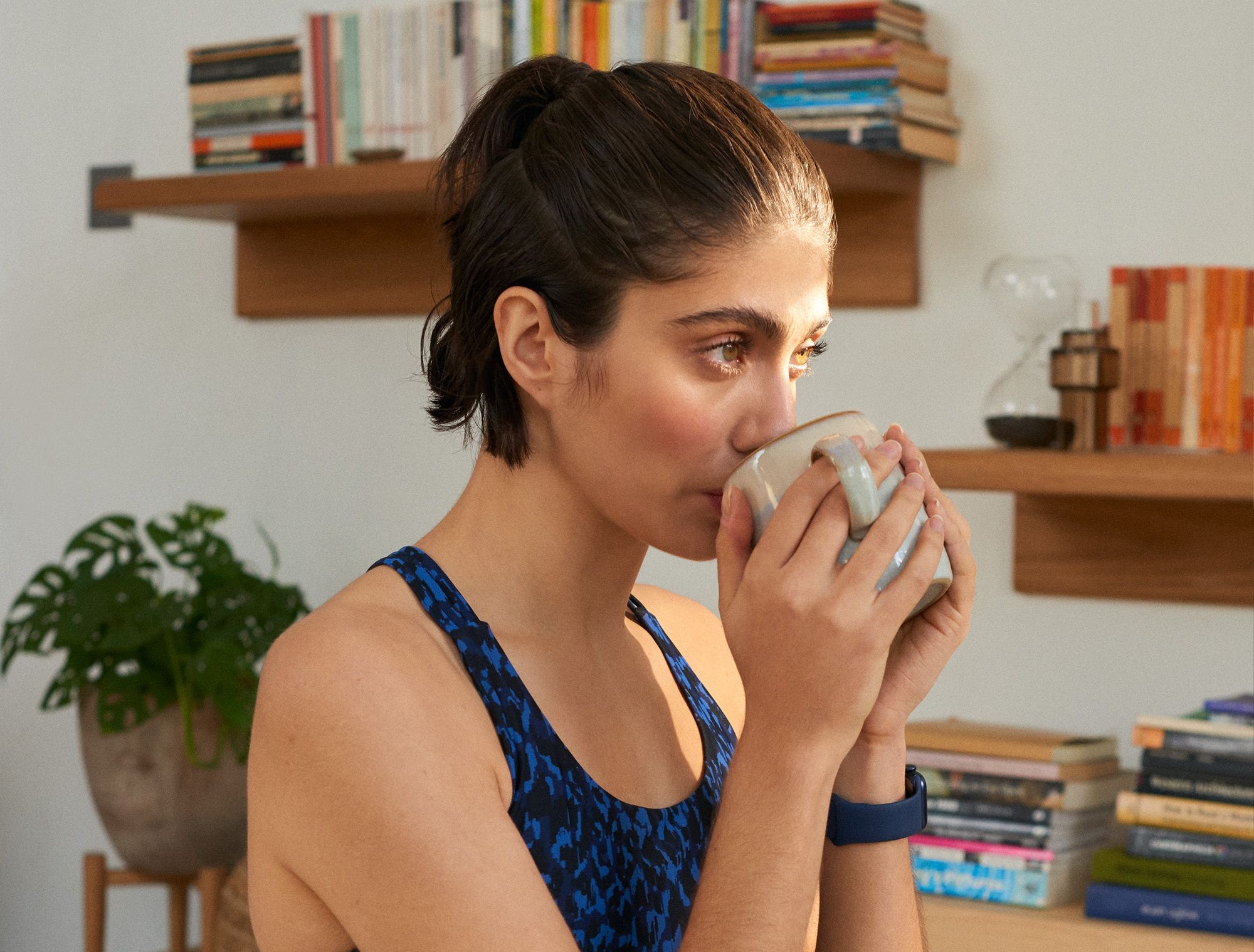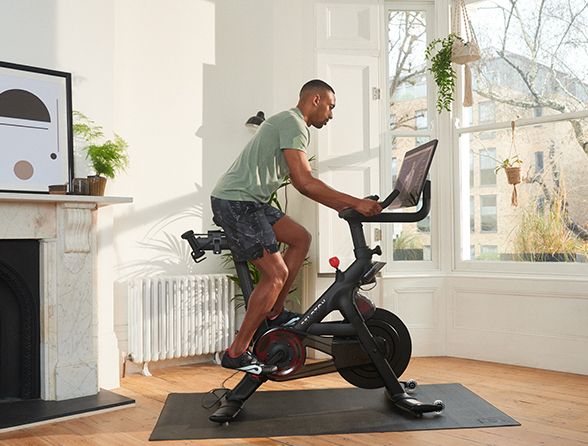Five quick ways to de-stress and unwind
From self-care rituals to feel-good foods, these stress busters will help you relax and unwind
We all have to cope with everyday worries, so having healthy tricks to deal with them is key. Now more than ever. The good news? From settling down with a good book and a hot cuppa to finding new ways to connect with friends and family online, dissolving stress is as easy as taking a few minutes out of your day to disconnect from the hustle and bustle, and reconnect with yourself and the people closest to you.
‘We often use the analogy of a leaky bucket when talking about stress and anxiety,’ Nicky Lidbetter, chief executive of Anxiety UK, explains. Everyday niggles like getting the kids ready for school, sitting in traffic, and grocery shopping in a busy supermarket are like little drops of water – over time, they all add up. ‘If you don’t have enough holes in your bucket to let the water flow out – like exercise, talking with friends or taking part in a hobby – it will eventually overflow and become overwhelming.’
It’s important not to minimise the long-term impact of everyday stress. ‘Most of us can manage varying amounts of pressure without feeling stressed,’ explains Carole Spiers, chair of ISMA UK and founder of International Stress Awareness Week (1-5 November). ‘But if you ignore it, stress can accumulate, leading to stress-related illnesses such as diabetes, IBS, migraine, back or neck pain, high blood pressure, heart disease or stroke, or mental health issues such as depression or anxiety.’
Working these simple stress-busting strategies into your routine will help you to relax, recharge and release the pressure.
1. Reflect
Put some time in your diary to… well, spend some time with your diary. Journaling allows you to reflect on your thoughts and feelings in a pressure-free environment, which can help you gain a better understanding of what’s really bothering you, accept the things you can’t change and start to come up with solutions to the things you can. ‘If you can learn what it is that specifically causes you stress, you can start to deal with it,’ Spiers explains. Grab a pen and block out 10-15 minutes – first thing in the morning or last thing in the evening tend to work well.
Diary so packed you don’t have 15 minutes to spare? You need to work on your time management – if there’s no time in your schedule for you, something’s got to give. ‘Learn to manage your time effectively, know your limitations and don’t take on too much,’ Spiers advises. ‘Remember, it’s OK to say no – nicely!’
2. Unplug
Feel like you’re always ‘on’? Research has credited email notifications, smartphone pings and TV news with raising stress levels and increasing levels of harmful stress hormones. The good news is that a few minutes of screen-free me-time each day can help. If you want to go all in, set yourself a screen curfew – simply turn off your phone, TV and laptop 30 minutes before bed and relax with a good book or a bath. ‘Regular me-time will help you relax, recharge and calm down a stressed mind and body,’ Spiers confirms. Feeling good? Reclaim even more of your evening by building up your tech-free time to one hour, two hours or even longer. You could use the extra time to meditate, try a relaxation or breathing exercise, or even take part in an online yoga class (we’ll give you a 30-minute screen pass for this one).
If you’re not ready to cut the cord entirely, start small. Make the first five minutes of your morning or lunch break a phone-free zone – sit and enjoy a cup of tea in the garden, read a magazine or take a mindful walk around the block, paying attention to all the things you can see, hear and smell. ‘There’s no need to feel guilty about taking time out,’ Lidbetter says. ‘Doing so will allow you to feel stronger and more able to manage things.’
3. Connect
While time out from tech is important, ‘we-time’ is just as crucial as me-time. Sharing with others can be one of the most effective ways to stop stress in its tracks. Although we can’t meet friends and loved ones in person at the moment, organising a virtual dinner party, weekly quiz night or monthly book club on a platform such as Zoom can be a great way to stay connected – and enjoy a good laugh, another tried-and-tested stress buster. If you’re not the techy type, do it the old-fashioned way and pick up the phone. ‘As the saying goes, a problem shared is a problem halved,’ says Lidbetter. ‘Talking to others about things that are troubling you can take the weight off your shoulders.’ You might just find out they feel the same way. Whatever happens, it will remind you that you’re not alone.
Volunteering is another great way to connect while giving something back. Research suggests that volunteering can improve your mental health, wellbeing and life satisfaction, and reduce your risk of depression. ‘Volunteering and giving back can make you more resilient to stress,’ Lidbetter says. Many organisations are now recruiting for virtual volunteers – you could become an online counsellor for Shout or digitally adopt a grandparent with CHD Living.
4. Eat for your (second) brain
You might have heard the gut referred to as your ‘second brain’ – and for good reason. ‘We now have overwhelming evidence to support the fact that our gut microbes, collectively known as the microbiota, have a major impact on our brains and our behaviour, especially in stress-related disorders such as anxiety,’ Lidbetter says. Research has even linked the probiotics found in foods such as live yoghurt with reductions in symptoms of stress.
‘Overall, it looks like a plant-based diet with lots of fibre, grains and some fish helps to promote optimal microbiota and support mental health,’ Lidbetter adds. Foods to pile on to your plate include vitamin-B-rich avocado, folate-packed broccoli, almonds for magnesium, and antioxidant-heavy fruit and veggies – kale and blueberries are great for this. Antioxidants help to repair and protect cells that can be damaged by stress and anxiety, while B vitamins, folates and magnesium are used to make important mood-influencing neurotransmitters, including serotonin.
You’ll find plenty of healthy seafood and plant-based recipes on the Waitrose website.
5. Get moving
Moving your body is one of the best things you can do to minimise stress. In addition to the physical benefits, regular aerobic exercise has been found to decrease feelings of tension, as well as improve and stabilise mood. ‘It’s now widely known that the link between physical health and mental health is a strong one,’ Lidbetter says. ‘Going for a brisk walk, taking a yoga class and swimming are all excellent ways to get your blood pumping and relax your mind at the same time.’
Walking, running and cycling are not only great for delivering mood-boosting cardio, they also provide a SAD-busting hit of sunlight into the bargain. If outdoor exercise isn’t your thing, you can still find an activity you enjoy that you can do in the comfort of your own home. You could try an online ballet class, mix things up with a virtual HIIT session or channel your inner yogi. Try some of our favourite classes on YouTube or Instagram and figure out what works for you – after all, nobody’s watching.
Main image: Getty










